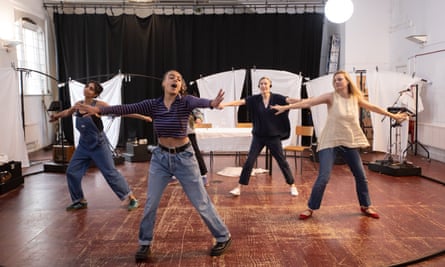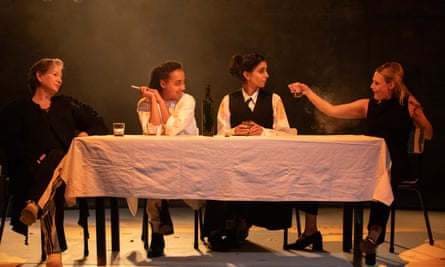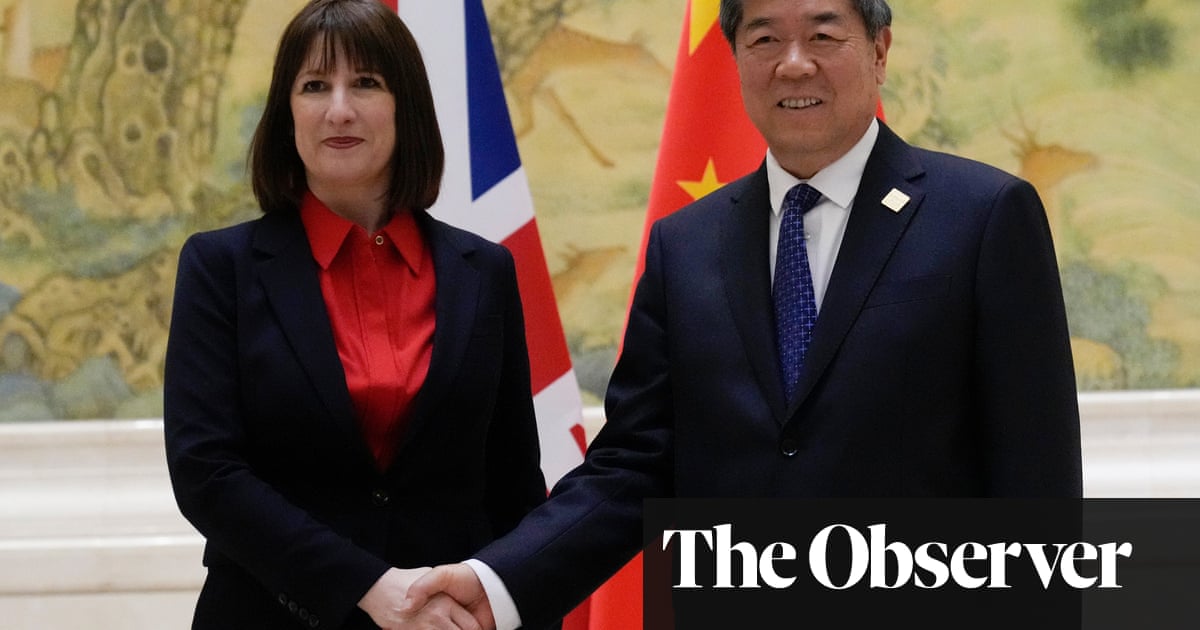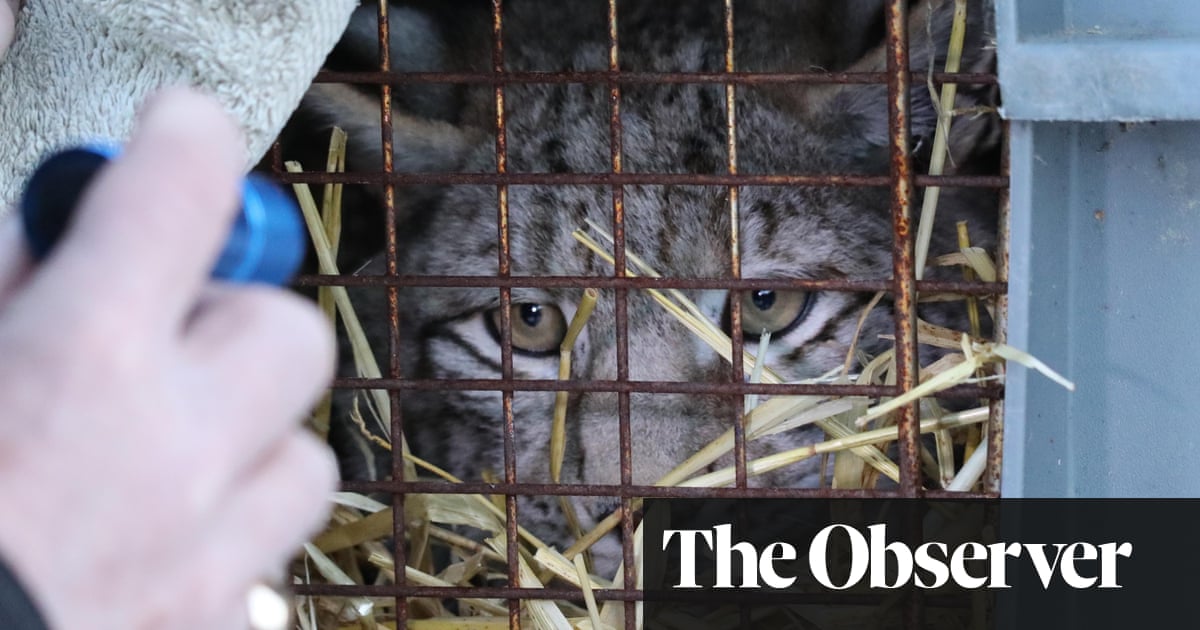When people ask me what The Years is like, I’m not sure how to answer. The play is an adaptation of Annie Ernaux’s slim book in which, with scalpel-like prose, she details her life from the end of the second world war to present-day France. From a provincial childhood to grammar school and university, she moves through the 1960s counterculture and changes to the social order, then on into motherhood and life in the suburbs, our all-encompassing capitalism, the freedom of divorce and a late-flowering sexual awakening.
Yet this is a totally incomplete way to describe it as a piece of theatre. “Annie” is played by five different actors of different ages, ethnicities and backgrounds. We play her in different periods of her life and also play the other characters: her mother, priest, uncle, children, university friends and many lovers.
The Years is unlike anything I have ever done – possibly any play you have ever seen – in that the actors tell the story of Annie communally. We hold the story between us, making it together instead of pushing different arguments backwards and forwards. Because there are no oppositional relationships in The Years, it strikes at the heart of the power structures that dominate art, just as they dominate life. Arguments are not “won” or “lost” by the force of will, or the force of the performance, but are something that we make between us and the audience.
Because of this revolutionary storytelling, the audience understand that, although we play different characters, we are all always Annie – just as the audience are always Annie. I’ve never felt as strongly the power and value of storytelling as I did when watching our director Eline Arbo. The vital need to yoke human beings together and remind them of their shared destiny is the essence of this play, and the way she has adapted and directed it.

The Years is a history of the entire postwar 20th century in the west, told through memories of the significant events that have shaped our lives. This means the audience contribute as much as the actors to the storytelling. It is a play somehow of one person and of us all. Like a whirlpool, it pulls in more and more of the audience. The few that smile at memories of rationing become the few more that remember their first vinyl record, their first taste of drugs, the horror of aerobics, the tyranny of the family camcorder – and also the seismic shifts that have rearranged our lives. The restrictions but optimism of a postwar world; the massive changes in social mobility, and racial and sexual equality. And throughout, the constant background to this is the music that has defined each era within this half-century of explosive change.
The stage is bare except for a few chairs and a table where families gather and eat, children play and couples have good and bad sex. All of life is here, and these events are given no hierarchy. The tragedy of the individual and of society are weighted equally. A few wooden boxes collide into each other and we see the twin towers fall. A woman lies on a table and loses her virginity. Both crises are the ending of innocence.
“My” Annie, Annie 3, dashes about the stage desperately collecting up her student protest leaflets as she fiercely tidies her suburban house in a way that, sadly, no woman even today will fail to recognise. I cut my knees open on the stage every night as I desperately crawl about the stage, living some of the pain of that frenzied aspiration.

The play doesn’t shy away from grief and violence – but nor does it shy from joy or laughter. In one episode (much reported by the press) Annie undergoes an illegal abortion that nearly kills her. I cannot think of a better time in history to detail this act. To remind people, whatever their faith, that when you take this right away from women, they will die. The past has taught us this. Societies that do not offer women the medical care they need to manage their pregnancies do not truly value female lives. The Years is in some senses a story of a woman’s body surviving the patriarchy, which is perhaps the greatest force that bears down upon Annie, as it does upon all of us.
Something that my friends who saw The Years remind me of when we talk about it is the recurring motif of a clean white tablecloth becoming gradually stained with coffee, cigarettes, wine, food, blood – all that has happened to us in our own lives and, through Annie, all that has happened to us as a society. In the end, the actors and audience are presented with a portrait of what we’ve been through together – the pain, loss, joy, hope and suffering of being alive.
It has been the privilege of my life to be part of this extraordinary piece of theatre. It has made me feel closer to others, to think more and more deeply. Through Annie Ernaux’s genius, and through Eline Arbo’s, I have seen the world anew.
-
The Years is at Harold Pinter theatre, London, 24 January-19 April

.png) 3 weeks ago
20
3 weeks ago
20













































